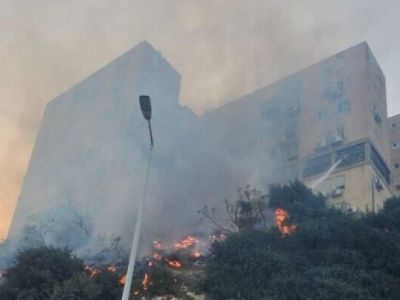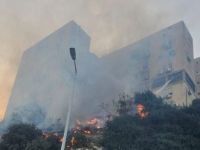Russia is expected to deny requests for nuclear weapons assistance from Iran and other Middle East clients, a leading analyst said on Monday, quoted by the Middle East Newsline (MENL).
The assertion was made amid United States concerns over the sale of specially-treated aluminum required for the production of rotor blades in gas centrifuges used to produce weapons-grade uranium, reported MENL.
US officials said the issue was raised during a weekend meeting between President George Bush and his Russian counterpart, Vladimir Putin, in Slovenia.
Vladimir A. Orlov, director of the Center for Policy Studies in Russia, told a conference that Putin was acting in a pragmatic rather than an ideological way.
Given the first stability in the country in 15 years, Putin has launched new policies in foreign affairs and defense, the news service quoted him as saying.
Putin has approved the 2000 Military Doctrine on nuclear and missile proliferation, which stresses Moscow's commitment to the nonproliferation of weapons of mass destruction (WMD). The commitment is regarded as a basis for Russia's relations with the United States.
"This is why Russia would hardly agree to provide nuclear assistance to East Asia [China, North Korea] or the Middle East [Iran, Syria, Libya], even if Moscow got such requests," Orlov said.
"Perhaps, the only state that theoretically may count on Russia's help is India, but Moscow still refuses to recognize India's nuclear-weapon state status."
Orlov's report said that despite inconsistencies, Russian authorities did not intend to take practical steps to support military nuclear programs of the states of concern. He said Putin had blocked attempts by lobby groups and Russian officials to transfer nuclear weapons technology to countries such as Iran and Syria.
The report quoted an assessment by the Russian Security Council that called on Putin to take seriously the threats of WMD proliferation in the Middle East, Central Asia and the Far East.
"Globalization has made us take these threats even more seriously," the assessment said. "It would be not reasonable to downplay them while the situation in the Middle East is deteriorating."
Last year, the United States stopped a Russian attempt to deliver to Iran advanced equipment required for nuclear weapons development.
The nuclear nonproliferation regime was challenged in 1998 by nuclear weapon tests in India and Pakistan, and by medium-range missile tests in those countries and in Iran.
According to a previous report by the Center for Nonproliferation Studies, the international community has exerted efforts to curtail Iran's nuclear energy program, but “this Middle East state has scored significant successes in acquiring technologies and building facilities,” a previous report by the Washington Post said – Albawaba.com
© 2001 Al Bawaba (www.albawaba.com)









